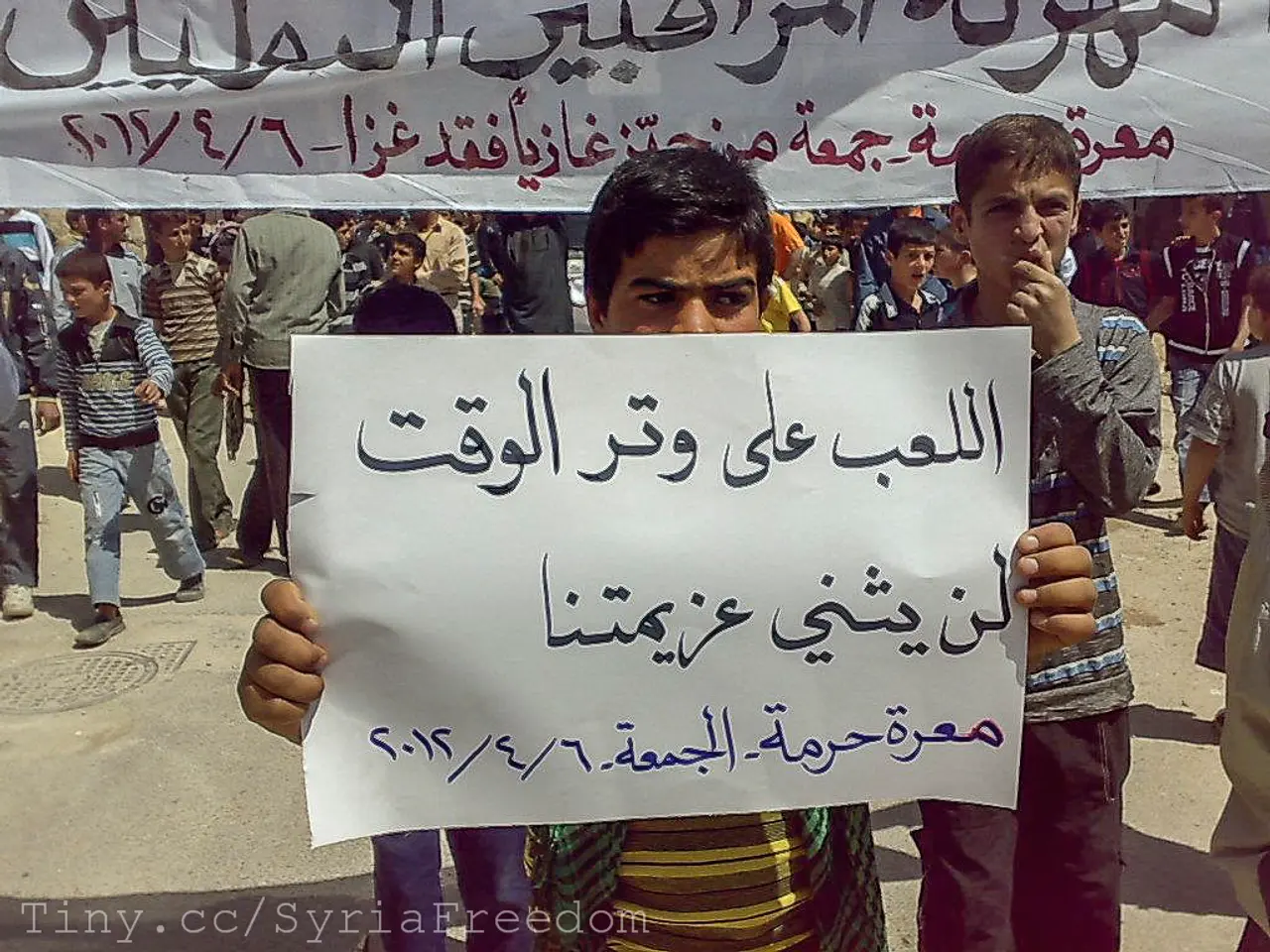EU finds Israel's compliance with the Gaza aid agreement incomplete
The European Union (EU) is expressing concern over Israel's compliance with an agreement aimed at improving aid supply to the blockaded coastal region of Gaza. The deal, reached in mid-July, was intended to enhance the supply of aid to the distressed civilian population, including a significant increase in daily food deliveries and other aid supplies by truck.
However, the EU has assessed that Israel is not fully complying with the agreement. The reasons for this non-compliance are said to be the non-binding, vague nature of the agreement, and the lack of effective monitoring mechanisms. Israel reportedly rejects UN bodies’ on-ground monitoring and limits independent assessment of aid delivery progress.
The humanitarian situation in Gaza remains dire and catastrophic, with around 2 million Palestinians living under the ongoing Israeli blockade. The EU deplores the unacceptable levels of civilian casualties, starvation, and the blockade’s severe restriction on humanitarian access and aid delivery. It calls on Israel to fully lift the blockade and allow unimpeded humanitarian assistance and independent UN operations.
Rising starvation warnings and warnings of worsening civilian suffering persist despite some incremental aid deliveries. More trucks carrying aid have been entering the Gaza Strip daily since the agreement reached in July, but the numbers are still below the agreed-upon levels.
In response to the ongoing crisis and Israel’s failure to implement the agreed aid improvements, the EU is considering punitive measures. These measures could include suspending Israel’s access to the EU Horizon research and innovation program as a direct consequence of the worsening humanitarian conditions and breaches of international law. This step reflects growing EU frustration with the slow and inadequate compliance by Israel.
Despite some member states remaining hesitant to impose sanctions, the EU's diplomatic service has sent a document to member states stating that they cannot directly verify the data due to Israeli authorities not granting EU representatives access to the Gaza Strip. There are discrepancies between the numbers provided by the United Nations and humanitarian actors and those provided by Israel, according to the document.
According to the health authority controlled by Hamas, more than 60,000 people have been killed in the blockaded coastal region since the start of the Gaza war. The number of deaths does not distinguish between civilians and fighters. The resumption of fuel supplies, which had been suspended for 130 days, is positive, as is the repair of some important infrastructure facilities and the reopening of the Egyptian and Jordanian routes.
The opening of the Zikim crossing to northern Gaza is also mentioned as a positive development. However, the Israeli government is currently fighting the Islamist Hamas in the Gaza Strip, where hostages are still being held. Aid organizations have warned of a potential humanitarian catastrophe in the Gaza Strip. The EU urges Israel to prioritize the welfare of the civilian population and ensure unhindered aid delivery.
References:
- The Guardian
- Al Jazeera
- Reuters
- UN OCHA
- EUobserver
- The EU is examining potential sanctions against Israel due to their non-compliance with an agreement aimed at improving aid supply to Gaza, a region affected by war-and-conflicts and general-news.
- Despite some progress in aid deliveries, the EU is concerned about the ongoing humanitarian crisis in Gaza, including unacceptable levels of civilian casualties and a blocked access to aid, which are political issues of international concern.






